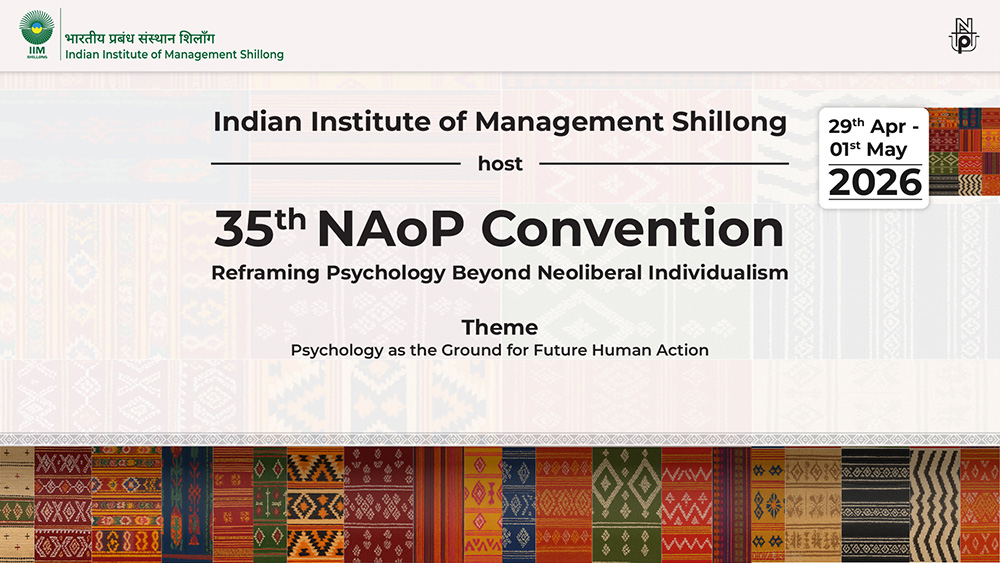Psychology as the Ground for Future Human Action
“Sarve bhavantu sukhinah, sarve santu niraamayaah”
Ancient Indian invocation envisions a world where all beings are happy and free of illness. It is part of the universal peace prayer (shanti mantra) often recited, wishing well-being for all beings. Such traditions have long celebrated compassion and collective well-being as core ethical ideals. Narsinh Mehta’s bhajan, which Gandhi ji sang daily “Vaishnav jana to taine kahiye je peer parayi jaane re” exhorts us to recognize and share in the suffering of others. Yet Psychology, while acknowledging these roots, has often neglected to translate such philosophical ideals into mainstream psychological discourse and practice. While Western models of care and compassion have provided valuable insights, they also risk marginalizing or misrepresenting lived experiences in societies where care is inherently collective, compassion is infused with spirituality, and community is the very ground of selfhood. Increasingly, scholars recognize that the monocultural assumptions of mainstream psychology, what has also been described as cognitive imperialism, cannot adequately capture the diversity of human life. Indigenous psychologies across Asia, Africa, Latin America, and First Nations traditions remind us that care, compassion, and community are not merely psychological constructs, but are embodied as cultural, moral, and spiritual practices. Western psychologists, too, have conceded that cognitive styles differ across civilizations. Pioneering works by Daniel Kahneman and Richard Nisbett, among others, have shown that people in the East often think differently compared to those in the West – embracing holistic, relational, and dialectical reasoning rather than purely analytical or binary logic. These findings echo what Indigenous traditions have long held: that human flourishing arises from interdependence, relational harmony, and compassion. At a time when AI-driven systems risk encoding and amplifying Western norms of human behaviour, the urgency of this discourse deepens. The challenge before us is profound:
- How do we create a global psychology that honours diversity and resists the erasure of plurality in the universalization of algorithms?
- How do we ensure that care, compassion, and community remain central to both the science of psychology and the practice of being human in a rapidly transforming world?
The proposed conference aims to serve as a platform for Reimagining Psychology in a way that honours both universals and particulars – where Western insights meet indigenous wisdom, and where the values of care, compassion, and community are reaffirmed as central to human survival and flourishing. Relevance of reimagining psychology goes beyond academia. It lays the very ground upon which future societies, communities, organizations, and nations can be built. A psychology infused with care, compassion, and community creates the foundation for management and governance that are not merely transactional but transformational. In this sense, psychology does not remain a discipline confined to laboratories or clinics, it becomes the scaffolding of all institutions. A plural, compassionate psychology can therefore inspire a new generation of leaders, managers, and policymakers who will shape more humane and sustainable futures.
